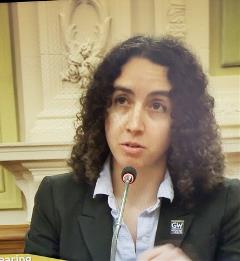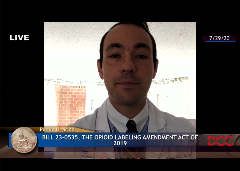Health Equity
Medicaid Enrollment Touches 39% of the Residents of The District of Columbia; DC’s 70/30 FMAP is Vital for the Maintenance of Health & Human Services
A reduction in the District’s FMAP would not lead to long-term government savings and would have a ripple effect throughout the entire health system in the DMV, crippling access to care for not only Medicaid beneficiaries but also all those who live, work, and visit the District of Columbia, including members of Congress and their staffs.
.png?sfvrsn=9ac2d21b_0)
Why does DC receive an Enhanced FMAP Rate?
The DC FMAP rate of 70% established by the Revitalization Act resulted from bipartisan analysis, discussion, and negotiation by Congressional leadership aiming to balance fairness with the District’s restricted ability to generate revenue. Congress recognized that the District of Columbia faces unique financial challenges due to its non-state status and the significant amount of federally-owned land within its boundaries. The District is unable to tax non-residents’ earnings, so these workers pay no taxes to support the infrastructure and services, such as roads, public safety and emergency services that they benefit from in the District. The District is also unable to tax up to 40% of the real property within its borders due to statutory restrictions.
Why are we concerned about DC's FMAP now?
Members of Congress have proposed reducing the DC FMAP to the statutory minimum for all other states, which is currently 50% (but could be reduced even more). Such a change would impact every physician and every practice, regardless of type, location, and payers contracted. Even practices who take no insurance will not be able to send patients for specialist care, hospital admissions, or other types of care.
What can MSDC members do?
- If you know a member of Congress or staffer, reach out to them and share how DC cuts will hurt your patients.
- Share your relationships and outreach with hay@msdc.org so we can help coordinate advocacy efforts.
- Email hay@msdc.org if you would like to be paired with a physician member of Congress office and trained by MSDC staff on how to reach out.
Resources
- DC FMAP cut fact sheet
- California Medical Association fact sheet on Medicaid cuts
- MSDC and healthcare association letter to Congress arguing against DC FMAP changes.
- MSDC original story on Medicaid changes.
News, Statements, and Testimony on Health Equity Issues
Committee on Health Advances Vaccination Bill
The Council's Committee on Health yesterday passed a bill permitting informed minors to consent to vaccinations, among a list of other bills.

The Minor Consent for Vaccinations Amendment Act of 2019 (B23-171) permits a minor aged 11 or older to receive a vaccine recommended by the US Advisory Committee on Immunization Practices without a parent or guardian's consent. The bill, written by Councilmember Mary Cheh, was in response to the increased activity by the "anti-vaxxer" movement. The bill as amended permits providers to receive reimbursement without involving the parents/guardian and permits minors to receive a copy of their immunization record without parental consent.
The Medical Society of DC and the DC Chapter of the American Academy of Pediatrics (AAP DC) worked closely with the Council to ensure the bill was medically sound. MSDC member Elizabeth Ghandakly testified on behalf of the Society at the June 26, 2019 hearing. At the markup, Chair Vincent Gray specifically thanked MSDC and its members for their work on the bill.
Two other bills were marked-up and passed out of committee yesterday of note for DC physicians. The first is B23-529, the Certificate of Stillbirth Amendment Act of 2019. The bill authorizes DC Health to create a process for a woman or couple to request a birth certificate for a stillborn pregnancy. MSDC member Dr. Sam Kareff testified in support of the bill, and the bill's language was reviewed with Council staff by MSDC and the American College of Obstetricians and Gynecologists (ACOG).

The second bill is B23-535, the Opioid Labeling Amendment Act of 2020. The bill requires prescription opioid medications to include a statement that the drug is an opioid and that opioids may cause dependence, addiction, or overdose. Dr. Kareff testified in support of the bill on behalf of MSDC at its hearing on July 29, 2020.

Leave a comment